Teachers and Streams
Stream 1: Social identity formation and social action
A wealth of literature supports the assertion that social identities underpin group behaviour and in particular collective action. But where do social identities come from? Drawing on a number of different literatures, this stream will take a look at the origins of social identities and their role in promoting coordinated forms of group action.
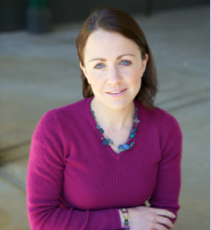 |
DR EMMA THOMAS
Murdoch University http://profiles.murdoch.edu.au/myprofile/emma-thomas/ Emma Thomas is a Senior Lecturer in Social Psychology at Murdoch University. Dr Thomas completed her undergraduate and postgraduate (PhD) degrees in psychology at the Australian National University before moving to Perth in 2010 to take up a teaching and research position in the School of Psychology at Murdoch University. In 2012 she was awarded a prestigious Australian Research Council Discovery Early Career Fellowship (2012-2015). Dr Thomas’ research focuses broadly on the conditions under which people will mobilise as members of groups to overcome social injustice. She focuses on the role of social identity, group emotions and beliefs in motivating (or undermining) social justice actions; and the psychological processes which underpin (non)violent resistance. |
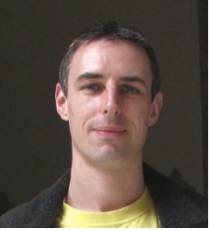 |
DR ANDREW LIVINGSTONE
University of Exeter http://psychology.exeter.ac.uk/staff/index.php?web_id=Andrew_Livingstone Andrew Livingstone is Senior Lecturer in Social Psychology at the University of Exeter, having previously held positions at the University of Stirling and Cardiff University. His research interests focus on social identity, intergroup relations, and emotion. Specific topics of his research include collective action and social change, the relationship between emotion and social identity, the strategic characterisation of ‘conflict’ by group members, and the role of social identity processes in alcohol consumption. He is currently an Associate Editor of the British Journal of Social Psychology. |
Stream 2: What are the costs and benefits of taking experimental and mundane realism seriously in social psychological research?
This stream explores the relationship between laboratory-based psychological research and the real world. There is often a tension between experimental realism and mundane realism, with increases in one coming at the cost of decreases in the other. The disconnection between the two not only presents a challenge in terms of how we study phenomena in both settings, but also provides an important opportunity to gain insight into the processes underlying phenomena and test our theories about why people think and behave the way they do. This stream focusses on two areas of research where these issues have been a central concern: social inclusion and exclusion; and psychology and law.
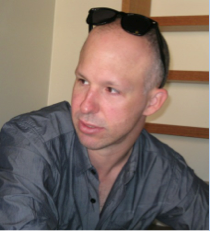 |
ASSOC/PROF BLAKE MCKIMMIE
University of Queensland http://www.sasp.org.au/research/appliedsocial/ Blake McKimmie is an Associate Professor in the School of Psychology at The University of Queensland. His research investigates how jurors make decisions and the effect of being in a group on individuals’ attitudes and behaviours. He is one of the leading jury decision-making researchers in Australia, using both simulations and surveys of actual jurors to understand the factors that influence jurors’ decisions. He is currently working on three Australian Research Council funded projects on jury decision making. The first is looking at how stereotypes about sexual assault influence jurors’ decisions, the second examines the way in which expert testimony is perceived and utilised by jurors, and the third is looking at the influence of the court room design on how jurors think about the defendant in criminal trials. He runs the Applied Social Psychology Lab in the School of Psychology. |
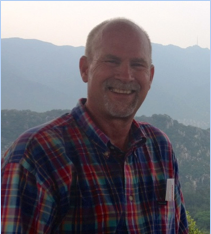 |
PROF KIPLING WILLIAMS
Purdue University http://williams.socialpsychology.org/ Kipling Williams is Professor of Psychological Sciences at Purdue University. He earned his B.S. from the University of Washington—Seattle (1975) and his PhD at The Ohio State University (1981). Prior to coming to Purdue, Williams was on faculties at Macquarie University and University of New South Wales (both in Sydney), University of Toledo (Ohio), and Drake University (Iowa). He is a pioneer and world-leading expert on social and psychological dynamics of exclusion. As well as his authored book, Ostracism: The Power of Silence, he has edited eight books, including The Social Outcast. He has been an associate editor of Group Dynamics: Theory, Research, & Practice, as well as Personality and Social Psychology Bulletin, and Journal of Experimental Social Psychology. He is currently the editor of Social Influence. His research interests include ostracism, social influence, and motivation in groups. He has published over 140 articles and chapters, with articles in Science, Scientific American-MIND, Psychological Science, and other top journals in the field of social psychology. In 2012, he was a Lorentz Fellow of the Netherlands Institute for Advanced Studies. He was a winner of the American Association for the Advancement of Science Socio-Psychological (AAAS), and Purdue University’s College of Health and Human Sciences Research Achievement Award.He is past president of the Society for Australasian Social Psychologists and the Midwestern Psychological Association. |
Stream 3: Motivation, Emotion, and Human Neuroscience
The focus will be on the psychology of emotion and motivation; we will also consider how human neuroscience methods can benefit the psychological study of emotion and motivation. We will cover topics such as the motivational functions of emotions and human mating motives.
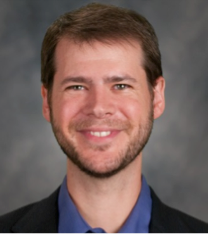 |
PROF JON MANER
Florida State University http://maner.socialpsychology.org/ Jon Maner, PhD., Professor of Psychology at Florida State University, studies motivated social processes from evolutionary and social psychological perspectives. He has published over 100 articles and chapters, covering topics in a variety of literatures including close relationships, power and leadership, rejection, and prejudice. Maner has received numerous awards for his research, including the Sage Young Scholar Award and the APA Distinguished Scientific Award for Early Career Contribution to Psychology. Maner also currently serves as an Associate Editor at the Journal for Personality and Social Psychology. He earned his doctoral degree from Arizona State University (2003). |
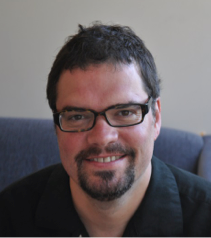 |
PROF EDDIE HARMON-JONES
University of New South Wales http://harmonjones.socialpsychology.org/ Eddie Harmon-Jones is Professor of Psychology at The University of New South Wales. His research focuses on emotions and motivations, their implications for social and cognitive processes, and their underlying neural circuits. In 2002, he received the Award for Distinguished Early Career Contribution to Psychophysiology from the Society for Psychophysiological Research. In 2012, he received theCareer Trajectory Award from the Society of Experimental Social Psychology. He has served as an associate editor of the Journal of Personality and Social Psychology and is currently an associate editor of the journals Psychological Science and Emotion. |
 |
DR CINDY HARMON-JONES
University of New South Wales Cindy is a research associate at the University of New South Wales. Her research focuses on emotion and motivation. |
Details
Dates: 3 – 9 February, 2014
Venue: Hideaway Retreat, Wentworth Falls, Blue Mountains
Registration Cost: $ 350
Expression of Interest: Australian/NZ Students: https://unswpsy.qualtrics.com/SE/?SID=SV_3WSvhIwaTnnigO9
North American Students: https://unswpsy.qualtrics.com/SE/?SID=SV_aWt6dqQ9GPNUZSJ
Expression of Interest Due date: 15th October, 2013
Registration Due Date: 15th November, 2013
Organising Team: A/Prof Tom Denson aided by Kate Blundell & Miriam Capper
